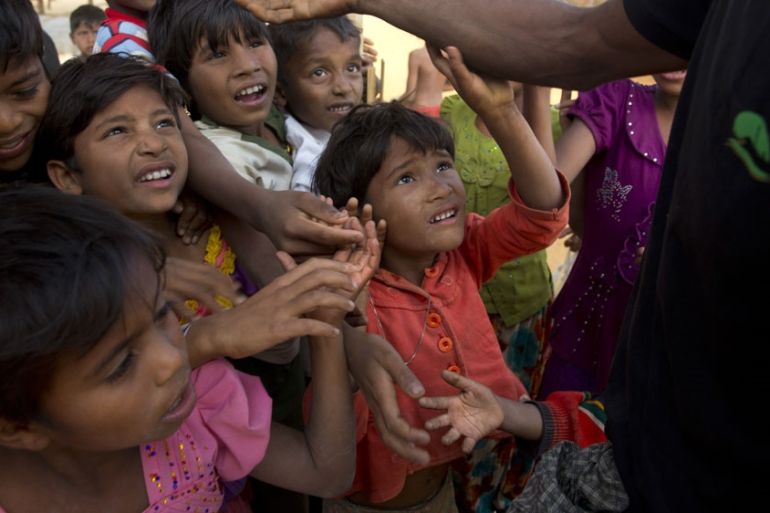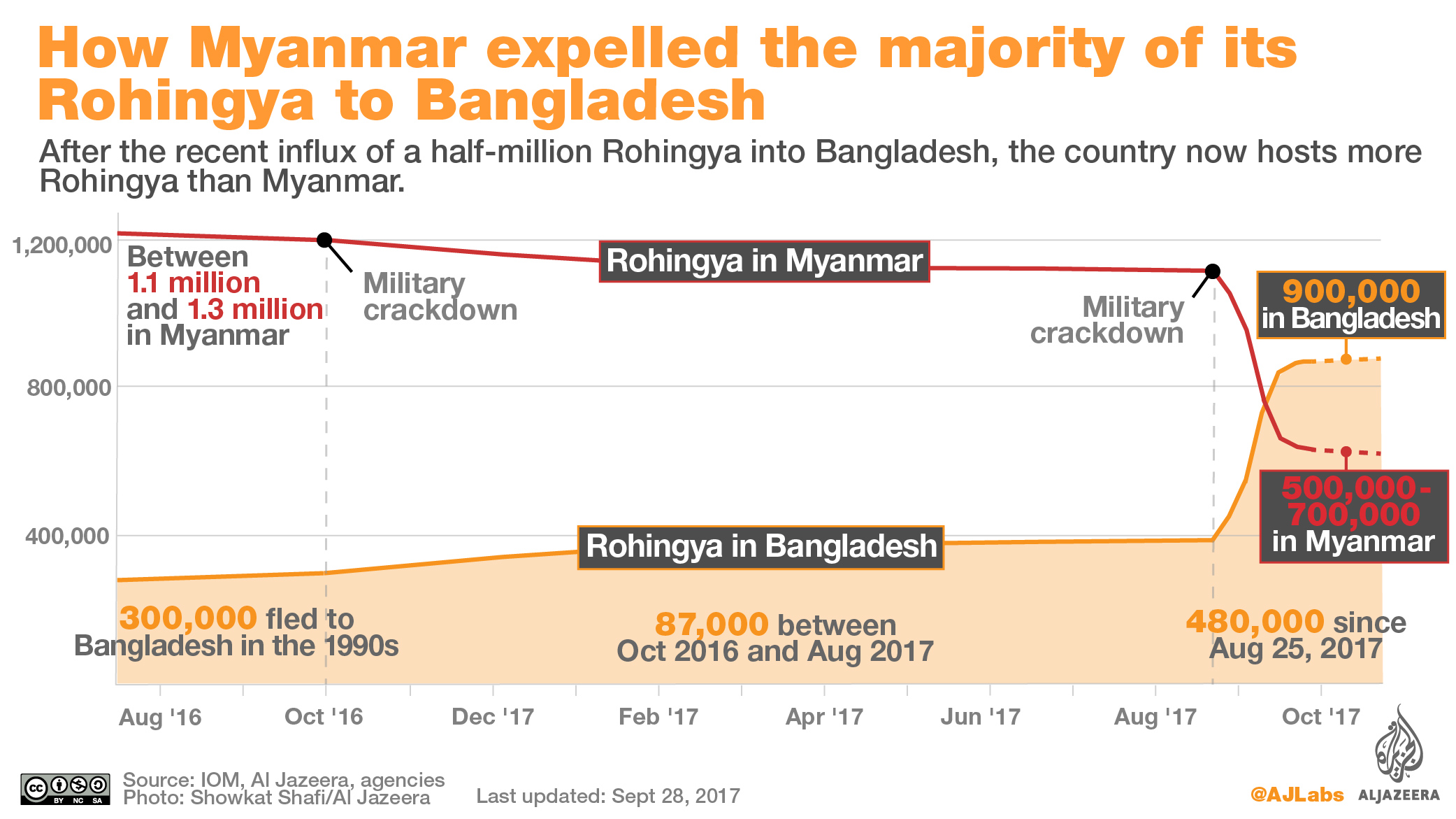Activists launch ‘Justice for Rohingya’ campaign in London
A legal campaign launched to initiate prosecution of Myanmar officials behind alleged crimes against humanity.

London, UK – Activists and lawyers in the UK have launched a campaign to seek to prosecute perpetrators of alleged war crimes against Myanmar‘s Rohingya minority.
The Justice for Rohingya Minority (JFRM) was launched at a ceremony at Amnesty International’s headquarters in London on Wednesday.
Keep reading
list of 4 itemsConflict, climate, corruption drive Southeast Asia people trafficking: UN
Bodies of three Rohingya found as Indonesia ends rescue for capsized boat
How is renewed violence in Myanmar affecting the Rohingya?
Abdulla Faliq, the chief executive officer of JFRM, said the group aims to seek justice for nearly 700,000 Rohingya who fled to Bangladesh following a brutal military crackdown last year by advocating to “expedite the legal process and pushing the UK government to put pressure” on Myanmar.
The JFRM, which comprises lawyers, jurists and academics, said it will also collect evidence of alleged war crimes against the Rohingya and take measures to prosecute perpetrators.
It will also push Myanmar to repatriate the Rohingya refugees with full citizenship rights.
|
|
The UN has labeled the Myanmar military’s offensive against the Rohingya in August 2017 “ethnic cleansing”, while human rights groups said the campaign of killings, rape and arson amounted to “war crimes”.
Myanmar denies the allegations, saying it launched a proportionate crackdown after attacks on border posts by a Rohingya armed group.
However, it has blocked UN investigators from accessing affected areas in its Rakhine state.
Mark Farmaner, member of JFRM and director of Burma Campaign UK, argued that the international response to the Rohingya crisis has been muted.
“Nine months on from the start of this crisis, Min Aung Hlaing has paid no price for what he’s done,” Farmaner said, refering to Myanmar’s army chief.
“He is emboldened, he has got away with it, and he’s now targeting other ethnic groups much more aggressively,” he said, pointing out to fighting that erupted recently in Myanmar’s northern Kachin State.
“It’s vital to end his sense of impunity.”

In February, more than 100 British members of parliament called on Boris Johnson, the country’s foreign secertary, to back a campaign to refer Myanmar’s military leaders to the International Criminal Court (ICC).
Condemning the UK government’s response as “pathetically weak”, Farmaner said London has so far refused to support the ICC call or impose targeted sanctions against Myanmar’s army.
Nijam Uddin, a JFRM member and general secretary of the British Rohingya Community UK, said the JRFM was necessary to prevent history from repeating itself.
“World leaders said ‘no more’ after the Rwandan genocide, but this is happening in the 21st century once again, this time against the Rohingya in Burma,” the former Rohingya refugee said.
Meanwhile, lawyer Ben Emmerson, who served on the International Criminal Tribunal for Rwanda and former Yugoslavia, drew parallels between war crimes committed in both countries to those perpetrated against the Rohingya.
“What has happened in Myanmar on the evidence that I have seen so far, rises certainly to the level of the most serious crimes that I saw in the former Yugoslavia and Rwanda,” he said.
“For the world to sit by and wring its hands and talk about donations to assist the refugee camps is slightly missing the point. This is a humanitarian disaster, and it’s time now for action to be taken in order to prevent a recurrence,” Emmerson said.